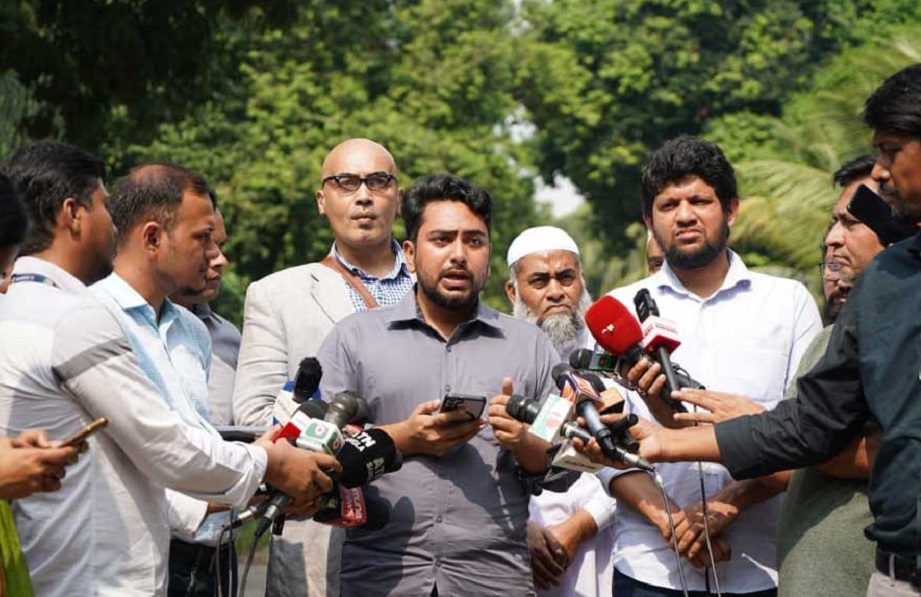

The interim government has formed a committee for the July Uprising Memorial Museum, with writer and filmmaker Ebadur Rahman as the convenor and Md Mahfuz Alam, special assistant to Chief Advisor Muhammad Yunus, as joint convenor.
Information and Broadcasting Advisor Nahid Islam announced the committee at a press briefing at the Ganabhaban on Saturday, reports bdnews24.com.
Other committee members are Mustain Billah, a writer and human rights activist; Jahid Sabuj, a faculty member from the fine arts department at Jagannath University; Nurul Momen Bhuiyan, an anthropology teacher at National University; Tanzim Wahab, a photographer and research director at the Bangladesh Shilpakala Academy; Sahul Ahmed Munna, writer and researcher; Marina Tabassum, an architect; and senior representatives from several government departments, including the Bangladesh National Museum, Archives and Libraries, and the Department of Archaeology.
The committee will also include one or two student representatives. Mahfuz and Mustain are also serving as members of the Constitution Reform Commission led by Prof Ali Riaz.
Located in Sher-e-Bangla Nagar at the northern corner of the parliament building, Ganabhaban served as the residence of former prime minister Hasina.
In the face of a student-led mass uprising, she fled from her residence to India on Aug 5.
In the days that followed, angry crowds stormed the premises, leaving it in ruins and looting everything inside and around it.
After the committee announcement, Nahid said the museum will preserve artefacts reflecting 16 years of oppression in Bangladesh and also commemorate the victories of the people and students.
A replica of the 'Ayna Ghor', or ‘house of mirrors’, is also being considered for the museum. Apart from preserving artefacts, the museum is expected to become a centre for research, and Nahid expressed hope that the people would view it as a monument to their struggle and achievements.
During the briefing, Mahfuz said Bangladesh people broke the arrogance of the fascist leader by entering Ganabhaban, which had, for the past 16 years, symbolised the suffering of the populace.
He added that the museum will be open not only to the people of Bangladesh but to the world at large, expressing hope that the newly formed committee would begin work on the museum this week.


 For all latest news, follow The Financial Express Google News channel.
For all latest news, follow The Financial Express Google News channel.